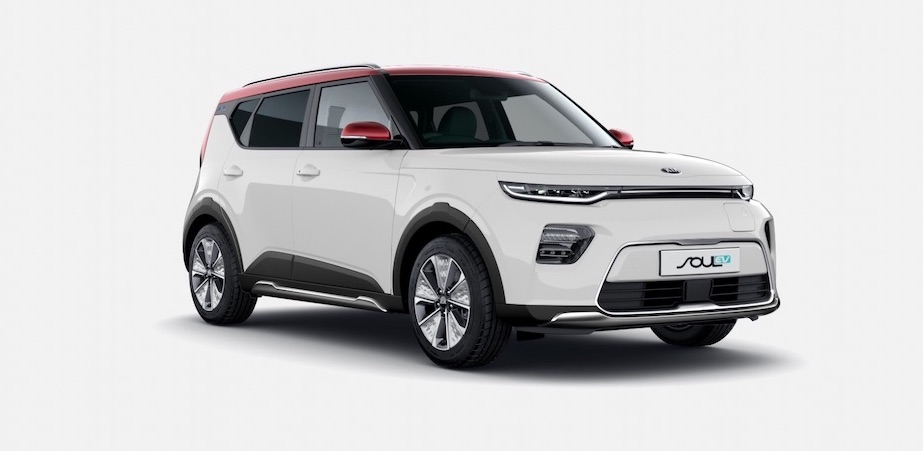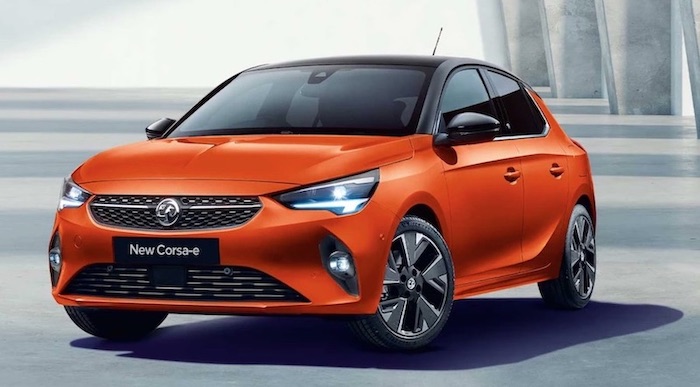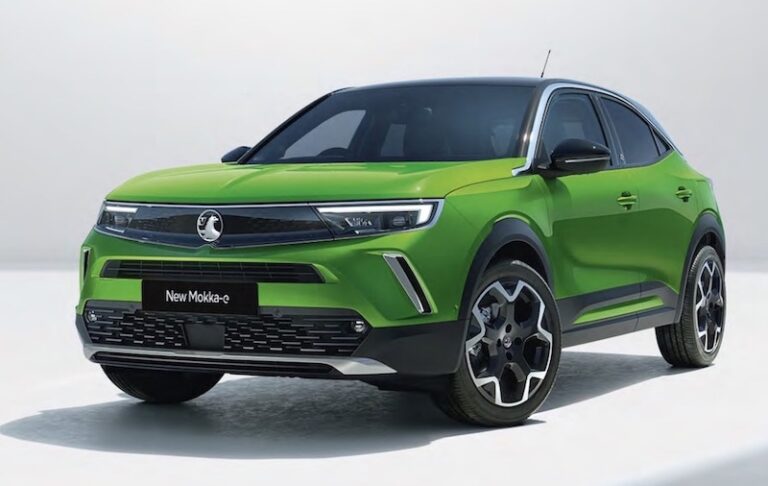Overview
Kia Corporation, the South Korean automotive manufacturer is fast developing a portfolio of lower-emission ‘eco’ vehicles, to include, zero-tailpipe emission battery-electric vehicles (BEVs), plug-in hybrid electric vehicles (PHEVs) and mild hybrids. The Korean automotive company is headquartered in Seoul, and it is South Korea’s second largest automotive manufacturer after the Hyundai Motor Company (Hyundai owns a 33.88% stake in Kia Corporation). At one point, the US automotive manufacturer, Ford Motor Company, also owned a stake in Kia.
Kia was found in June 1944, and was formerly known as Kyungsung Precision Industry. It has also been previously known as Kia Motors Corporation. The Kia name has been derived from the Sino-Korean characters, ‘ki’ (arise) & ‘a’ (Asia) to suggest ‘Rising from Asia’. The Kia Corporation has been active in the European markets since 1991. The Kia electric vehicle (EV) portfolio includes both, battery-electric vehicle (BEV) and plug-in hybrid electric vehicle (PHEV) models:
- The all-electric Kia Niro EV
- The all-electric Kia Soul EV
- The all-electric Kia EV6
- The all-electric Kia EV6 GT
- The all-electric Kia EV9
- The all-electric Kia EV3
- Kia Niro Plug-In Hybrid
- Kia XCeed Plug-In Hybrid
- Kia Ceed Sportswagon Plug-In Hybrid
- Kia Sportage Plug-In Hybrid
- Kia Sorento Plug-In Hybrid
Electric Cars: The Basics
For those of you new to zero-emission electric driving, we recommend a read of the following articles:
Sign up to the e-zoomed Electric Living newsletter
The All-Electric Kia Soul EV SUV
Like the Kia e-Niro pure electric car, the all-new Kia Soul EV SUV has been positioned for ‘affordability’ and ‘value’. Of course, as one would expect, there is much in common between the two pure electric compact crossovers SUVs from Kia. Kia started developing the all-electric Soul SUV in 2013 and the electric vehicle (EV) was unveiled at the 2014 Chicago Auto Show.
It is worth noting that unlike the all-electric Kia EV6, the Kia Soul EV has not been developed on a dedicated EV platform. Despite this constraint, the pure electric car has a decent proposition on offer for families keen to migrate to emission-free electric driving.
The Soul electric vehicle (EV) is available in one battery size (64 kWh), with a claimed zero-emission electric range of up to 280 miles (WLTP). Even adjusting for real-world driving conditions, the Soul EV should be able to deliver over 240 miles on a fully charged EV battery. This is above average compared to other pure electric cars of a similar age.
It is also worth noting that despite the narrative on ‘range anxiety’, the average distanced travelled in the UK in a day is a mere 30 miles. With a fully topped up EV battery, the Soul EV delivers an electric range that can be used for an entire week, if the day-to-day needs are local commutes. Of course, if motorway driving is involved, the EV will need to be charged more frequently.
We encourage EV owners to charge their electric cars on a regular basis. This way there is always ‘juice’ available and the time to recharge is shorter. Moreover, regular charging is good for the overall maintenance of the onboard EV battery. Kia offers a warranty up to 7 years or 100,000 miles.
The EV is capable of up to 100 kW DC rapid charging, with a 7.2 kW AC onboard charger as standard. At 100 kW DC, the electric SUV can be charged up to 80% in 54 minutes and at 50 kW DC it takes 1 hour 15 minutes to fully charge the EV battery. With the fast developing electric car public charging infrastructure in the UK, finding a rapid charging station on the way has become less challenging.
The 7 kW AC onboard charger is also appropriate, given that the majority of homes in the UK are powered by single-phase power supply. The EV can be fully charged in 9 hours and 35 minutes via a dedicated residential EV charger like easee. Though the EV can be charged using a domestic plug, we at e-zoomed discourage using a 3-PIN domestic plug to charge an electric car. In any case, it will take up to 29 hours to fully charge the battery via a 3-PIN plug!
Some helpful tips for home charging include: charge the electric car overnight, when the electricity prices are cheaper. Use solar energy generated at home to charge the EV (green energy is good energy!) Depending on the cost of charging, the cost per mile for an EV will be between 3 pence and 10 pence. Substantially cheaper, compared to driving a conventional petrol or diesel car. Moreover, electric cars have zero-tailpipe emissions i.e. lower local air pollution!
The EV is practical and versatile. The rear seats are comfortable for adults, with ample legroom and headroom. Standard specification includes: 7″ OLED display cluster, 10.25″ touchscreen satellite navigation, Apple CarPlay, Android Auto, reversing camera system, forward collision-avoidance assist, lane keep assist system, lane follow assist, blind spot detection, driver attention warning and more.
In terms of performance, the front-wheel drive (FWD) Kia Soul EV is decent. It will not set the heart racing, but it gets the job done, despite the additional weight of the EV battery (457 kg). The Kia Soul EV can achieve 0-62 mph in 7.9 seconds (max power: 201 bhp/ 395 Nm torque). The top speed of the EV is 104 mph.
Company-car drivers can take advantage of the lower Benefit-in-Kind (BiK-2%) tax rate for pure electric cars. The Kia Soul EV can be leased via e-zoomed at fantastic prices. Bottom-line, electric driving is good for the environment and the wallet.
| PROS | CONS |
|---|---|
| An affordable pure electric family SUV | Only available as front-wheel drive |
| Decent pure electric range (280 miles) | Boot space is limited |
| DC charging up to 100 kW | Only available in one trim |
The All-Electric Kia Soul EV SUV (credit: Kia)
| At A Glance | |
|---|---|
| EV Type: | Battery-Electric Vehicle (BEV) |
| Body Type: | SUV |
| Plug-In Car Grant (PiCG): | Not Available |
| Engine: | Electric |
| Available In UK: | Yes |
| Variants (1 Option) |
|---|
| Kia Soul EV ‘Maxx’ (from £34,995) |
| EV Battery & Emissions | |
|---|---|
| EV Battery Type: | Lithium-ion |
| EV Battery Capacity: | Available in one battery size: 64 kWh |
| Charging: | 100 kW Rapid DC Charging (10%-80%: 54 mins). Onboard charger: 7.2 kW AC (0%-100%: 9 hrs 35 mins) |
| Charge Port: | Type 2 |
| EV Cable Type: | Type 2 |
| Tailpipe Emissions: | 0g (CO2/km) |
| EV Battery Warranty: | 7 years or 100,000 miles |
| Average Cost Of Residential Charging | |
|---|---|
| Battery net capacity : 16.7 kWh | £2.40 |
| Battery net capacity : 30.0 kWh | £4.32 |
| Battery net capacity : 39.2 kWh | £5.64 |
| Battery net capacity : 45.0 kWh | £6.48 |
| Battery net capacity : 50.0 kWh | £7.20 |
| Battery net capacity : 64.0 kWh | £9.22 |
| Battery net capacity : 71.0 kWh | £10.22 |
| Battery net capacity : 77.0 kWh | £11.09 |
| Battery net capacity : 90.0 kWh | £12.96 |
| Battery net capacity : 100.0 kWh | £14.40 |
- Note 1: The average cost of residential electricity in the UK varies depending on the region, supplier and type of energy used. An average for the UK is 14.40 p/kWh.
- Note 2: Not all EV manufactures make available the data on net EV battery capacity, and in a number of instances the EV battery capacity advertised, does not state if it is gross or net capacity. In general, usable EV battery capacity is between 85% to 95% of the gross available capacity.
| Charging Times (Overview) | |
|---|---|
| Slow charging AC (3 kW – 3.6 kW): | 6 – 12 hours (dependent on size of EV battery & SOC) |
| Fast charging AC (7 kW – 22 kW): | 3 – 8 hours (dependent on size of EV battery & SoC) |
| Rapid charging AC (43 kW): | 0-80%: 20 mins to 60 mins (dependent on size of EV battery & SoC) |
| Rapid charging DC (50 kW+): | 0-80%: 20 mins to 60 mins (dependent on size of EV battery & SoC) |
| Ultra rapid charging DC (150 kW+): | 0-80% : 20 mins to 40 mins (dependent on size of EV battery & SoC) |
| Tesla Supercharger (120 kW – 250 kW): | 0-80%: up to 25 mins (dependent on size of EV battery & SoC) |
- Note 1: SoC: state of charge
| Dimensions | |
|---|---|
| Height (mm): | 1605 |
| Width (mm): | 1800 |
| Length (mm): | 4195 |
| Wheelbase (mm): | 2600 |
| Turning Circle (m): | 10.60 |
| Boot Capacity (L): | 315 |
| Soul EV | |
|---|---|
| EV Battery Capacity: | 64 kWh |
| Pure Electric Range (WLTP): | 280 miles |
| Electric Energy Consumption (Wh/km): | 157 |
| Charging: | 100 kW Rapid DC Charging (10%-80%: 54 mins). Onboard charger: 7.2 kW AC (0%-100%: 9 hrs 35 mins) |
| Top Speed: | 104 mph |
| 0-62 mph: | 7.9 seconds |
| Drive: | Front-wheel drive (FWD) |
| Electric Motor (kW): | 150 |
| Max Power (bhp): | 201 |
| Torque (Nm): | 395 |
| Transmission: | Automatic |
| Seats: | 5 |
| Doors: | 5 |
| Kerb Weight (kg): | 1,757 |
| Colours: | 4 |
| NCAP Safety Rating: | N/A |
While e-zoomed uses reasonable efforts to provide accurate and up-to-date information, some of the information provided is gathered from third parties and has not been independently verified by e-zoomed. While the information from the third party sources is believed to be reliable, no warranty, express or implied, is made by e-zoomed regarding the accuracy, adequacy, completeness, legality, reliability or usefulness of any information. This disclaimer applies to both isolated and aggregate uses of this information.








































